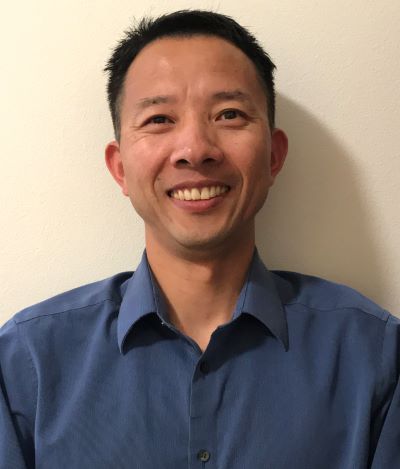Wenlong Jin Faculty Spotlight Interview
Professor of Civil and Environmental Engineering
How did you become interested in transportation? And what interests you most right now?
I became interested in transportation while studying Applied Mathematics at UC Davis, seeing it as a way to apply mathematical models to real-world problems. Currently, I'm most interested in developing innovative approaches to collect and analyze large-scale traffic data while prioritizing privacy.
What drew you to UCI/ITS-Irvine? What do you like best/find as strengths at UCI/ITS-Irvine?
I was drawn to UCI for its world-class transportation program and the Institute of Transportation Studies' comprehensive approach. What I appreciate most is the academic freedom at UCI. This allows me to explore diverse research interests, from technical aspects to economic and social dimensions of transportation.
If you could give incoming students one piece of career advice, what would it be?
Approach your field with a holistic perspective. In transportation, consider multiple angles - technical aspects, economic impacts, and social implications. Understanding how these interconnect can lead to more innovative solutions and a fulfilling career.
What are your research interests?
My research interests focus on developing innovative methods for collecting and analyzing large-scale traffic data while maintaining privacy, creating mathematical models for safe and human-like automated driving, and investigating the intersections of engineering, economics, and social aspects of transportation.
What do you consider your most significant research finding or accomplishment thus far?
My most significant research accomplishment is developing the Generalized Bathtub Model, inspired by William Vickrey's work. This model offers a novel approach to analyzing large-scale traffic patterns by focusing on macro-level inflow and outflow of traffic.
What are your other plans for future research?
My future research plans aim to contribute to a comprehensive understanding of transportation systems, leading to technically sound, economically viable, and socially beneficial solutions.
What issues in transportation keep you up at night?
Three critical issues in transportation keep me up at night:
- Privacy: Balancing the benefits of data-driven transportation improvements with the need to protect individual privacy.
- Equity: Ensuring that new transportation technologies (like high occupancy toll lanes) don't exacerbate existing inequalities.
- Safety: Addressing new safety challenges introduced by automated vehicles and shared mobility options.
Is there someone or something that has inspired you?
A significant inspiration for my work has been the late Professor William Vickrey from Columbia University. His first principles-based approach to understanding urban traffic flow, particularly his work on traffic patterns in Midtown Manhattan, aligns closely with my research philosophy of seeking novel approaches to longstanding challenges in transportation.
What are you watching right now?
I enjoy a diverse range of content on YouTube. This variety often leads to unexpected connections and ideas that enrich my approach to transportation research, reflecting the complex, multifaceted nature of modern transportation challenges.
What are you reading right now?
I'm currently reading 'Development as Freedom' by Amartya Sen. Sen's approach to development economics, emphasizing the importance of individual freedoms and capabilities, offers interesting parallels to transportation planning and policy. His ideas about how various factors interconnect to affect human welfare resonate with my view of transportation as a complex system influencing many aspects of life.
What is a fun fact about you?
I train both hands for badminton, allowing me to adapt my game to different opponents. I use my advanced right hand against skilled players and my beginner left hand against less experienced ones.
What is something about you that most people don’t know?
Most people don't know that I'm practicing Tai Chi while simultaneously developing a mathematical model for it. This endeavor exemplifies my belief in holistic approaches, which I apply to both personal life and transportation research. It challenges me to think across disciplines, combining physics, biomechanics, and traditional Chinese philosophy with advanced mathematics.
What is your superpower?
My superpower is creating mathematical models that capture the essence of diverse, complex systems. This modeling superpower has led to significant contributions like the Generalized Bathtub Model for urban traffic flow. It allows me to bridge abstract mathematics and real-world applications, contributing to innovative solutions across various domains, from transportation to personal wellness practices like Tai Chi.